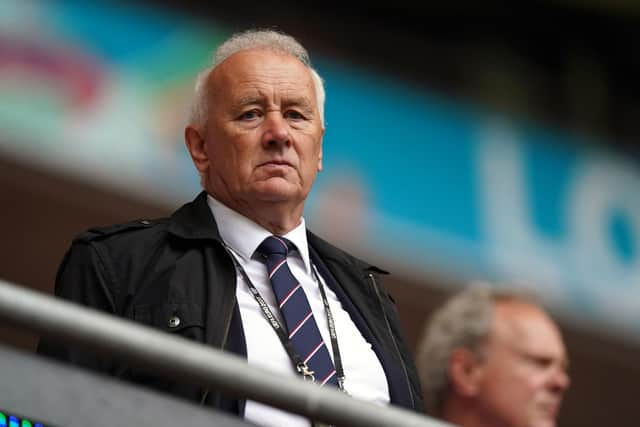New football regulator to prevent European Super League and fairly distribute money
The Government will publish its White Paper on football governance today, and has now confirmed it will act on a recommendation from the 2021 fan-led review of football to create a regulator.
The body’s main purpose would be to oversee a licensing system to ensure clubs are run sustainably, following the collapse of Bury and Macclesfield in recent years.
Advertisement
Hide AdAdvertisement
Hide AdHowever, the regulator will also be able to step in and force arbitration if the Premier League, the EFL and the Football Association are unable to reach a new settlement on how top-flight finances support the game at lower levels.


Discussions between the bodies are ongoing. The EFL’s chairman, Rick Parry, is looking to secure 25 per cent of all pooled broadcast revenues in a new settlement, alongside the introduction of two to one merit-based payments in the Premier League and Championship and the abolition of parachute payments in a bid to reduce what he sees as the “cliff edge” between the first and second tiers.
Parry, inset, had called for the regulator to be given backstop powers and said this week he would be “very negative” if the Government did not address it in the White Paper. The Government is confident the regulator’s powers will be balanced in such a way that it will not diminish the competitiveness and strength of the Premier League.
The licensing system will enshrine a power of veto for fans on club heritage matters, preventing owners from changing a club’s name, stadium, badge or kit without fans input, and powers to block clubs from joining new competitions which do not meet predetermined criteria, in consultation with the FA andfans.
Advertisement
Hide AdAdvertisement
Hide AdThe review also recommended the introduction of a levy of up to 10 per cent on Premier League transfer deals to support the pyramid and grassroots football.
This was heavily criticised at the time by top-flight bosses, with Leeds chief executive Angus Kinnear likening it to Maoism.